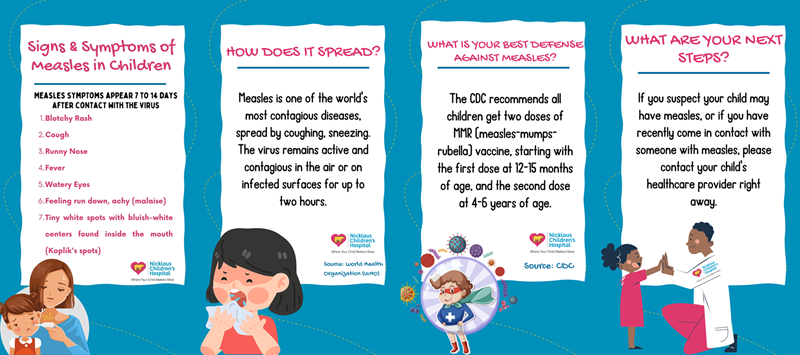The Florida Department of Health Broward County office issued a Health Advisory regarding several cases of measles that were reported at an elementary school in Weston, Florida.
Measles is a highly contagious virus that is spread through the air by breathing, coughing or sneezing. It can be transmitted from four days before the rash becomes visible to four days after the rash appears. The symptoms of measles generally begin approximately seven to 14 days after a person is exposed to someone with measles, and include the following:
- Blotchy rash (appears three-five days after the first symptoms)
- Fever (may spike to more than 104°)
- Cough
- Runny nose
- Red, watery eyes (conjunctivitis)
- Feeling run down, achy (malaise)
- Tiny white spots with bluish-white centers found inside the mouth (Koplik's spots)
What Parents Can Do To Protect Children Against Measles
One of the most effective forms of protection from measles is the MMR (measles, mumps and rubella) vaccine. According to the CDC, one dose of MMR vaccine is 93 percent effective against measles, 78 percent effective against mumps, and 97 percent effective against rubella. Two doses of MMR vaccine are 97 percent effective against measles and 88 percent effective against mumps. Children should receive two doses, with the first at 12 to 15 months of age, and the second at 4 to 6 years of age. If you’re concerned that your child may be behind on their vaccination schedule, or you’re not sure, the best course of action is to schedule an appointment with your child’s pediatrician.
If you suspect your child may have the measles virus, or if you have recently come in contact with someone with measles, please contact your child's healthcare provider right away.

Click the image to enlarge